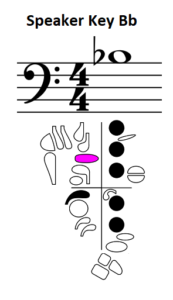
The fingering for upper Bb is almost the same as for the middle Bb you’ve already learned. The only finger that changes is the left thumb which moves from the whisper key to the high A or high C speaker key,
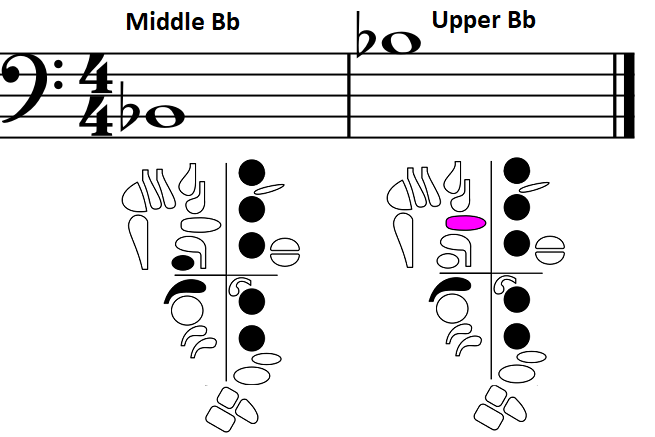
The only difference between playing octave As and octave B-flats is that your right thumb will press the Bb key for the B-flats. You should still be able to use the A speaker key on the upper Bb. If you get too much sound/pitch disruption with the A speaker key, try pressing the C speaker key instead.
Matching Pitch
Play through Matching Pitch on Bb to determine which of the speaker keys works best for Bb on your bassoon. Use faster air for the upper Bb to get good response and tone.

If you are flat on the upper Bb:
- Listen carefully to the drone to internalize an accurate aural target, AND
- Use your best breath support, AND
- Make sure the E tone hole is completely covered (no half-hole).
- Raise the back of your tongue into more of an “ee” (see) position.
- Decrease space between your teeth and in the oral cavity.
If you are sharp on the upper Bb:
- Listen carefully to the drone to internalize an accurate aural target, AND
- Use your best breath support and fast air, AND
- Increase space between your teeth.
Speaker Key Exercise on Bb
This exercise will help train your thumb to move between the whisper key and the A or C speaker key.
- Your thumb must be on the correct key at the start of the note (whisper for lower Bb, speaker for upper Bb). This means your thumb will have to leave the current key early (before the start of the next note).
- Keep your embouchure and air speed the same until just before the beginning of the octave change.
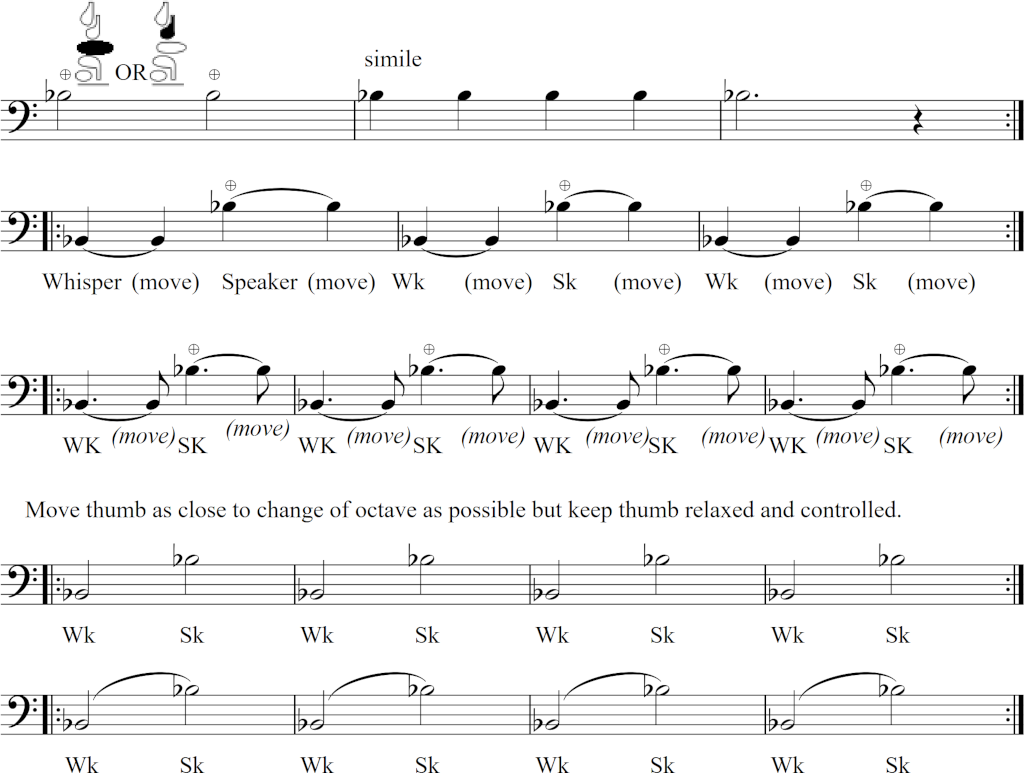
Troubleshooting:
If your lower note jumps up as soon as you take your thumb off of the whisper key, your embouchure is too tight. Add space between your teeth and in your oral cavity by thinking “hot pizza mouth.”
Bb major scale
Now you know the notes to play a one-octave Bb scale that goes between middle and upper Bb.
Remember:
- Forked Eb can make this scale tricky so find creative ways to isolate and repeat D-Eb-F until it is fluid.
- Half-hole and resonance key on G
- Pivot back to full hole for the A and Bb.
- Use the high A or high C speaker key on the top A and Bb.
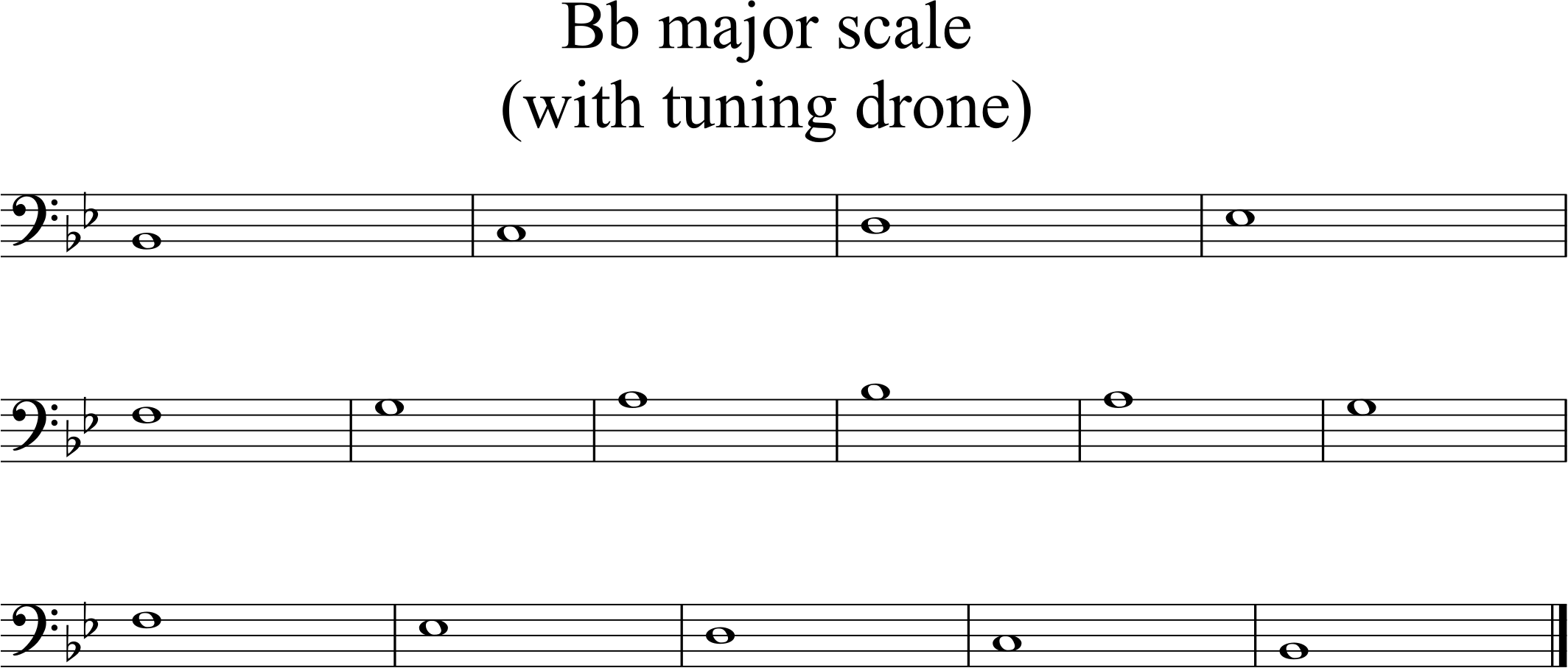
Bb Scale Pattern Practice
This exercise is a good way to work through the finger combinations in the Bb scale.
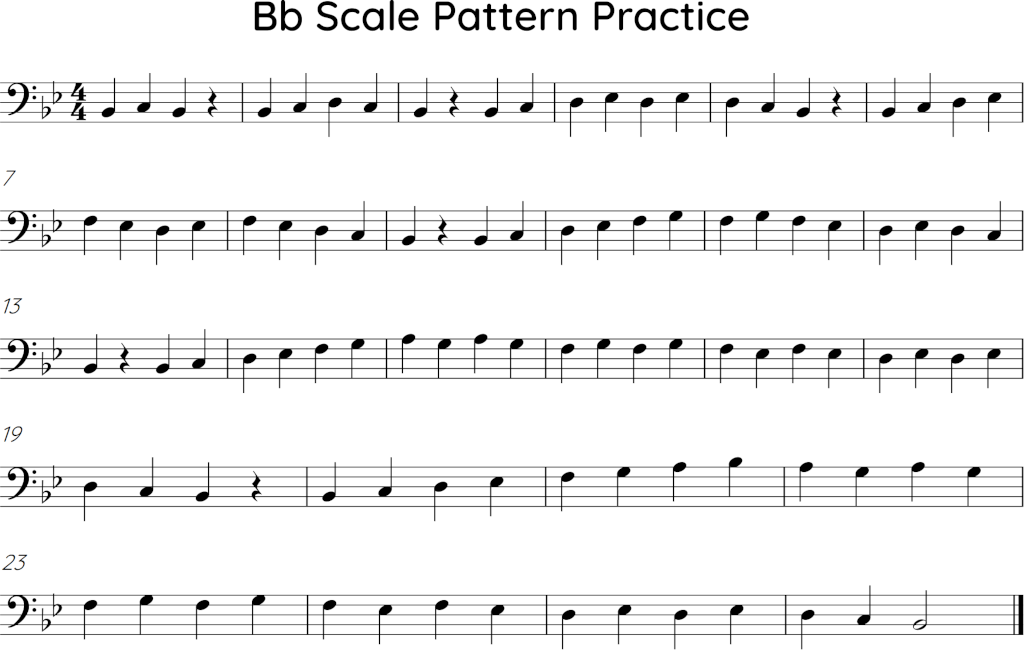
Bb Scale Pattern Practice with finger reminders
+res = add the resonance key (left pinky top key)
red line = use the whisper key
blue line = use the speaker key (high A or C)
green circle = half-hole
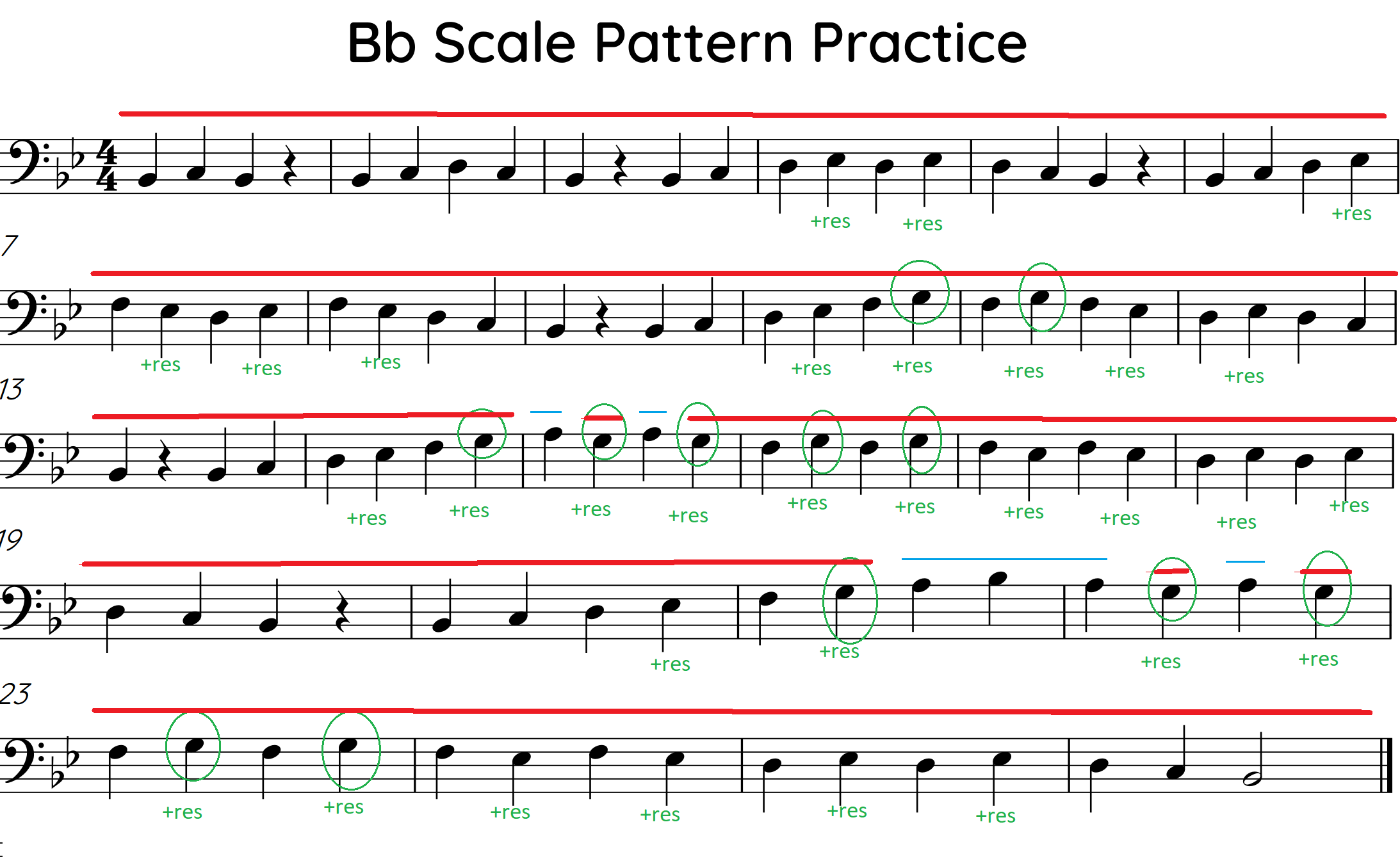
Now try playing the Bb scale in quarter notes straight up and down.

College Song
This counting shown for this tune puts the “inactive counts” in parenthesis. Inactive counts are beats or subdivisions where nothing changes but you still need to count to keep the pulse and hold the note(s) for the correct duration. It is especially important to count these inactive beats to avoid getting lost or losing the beat.
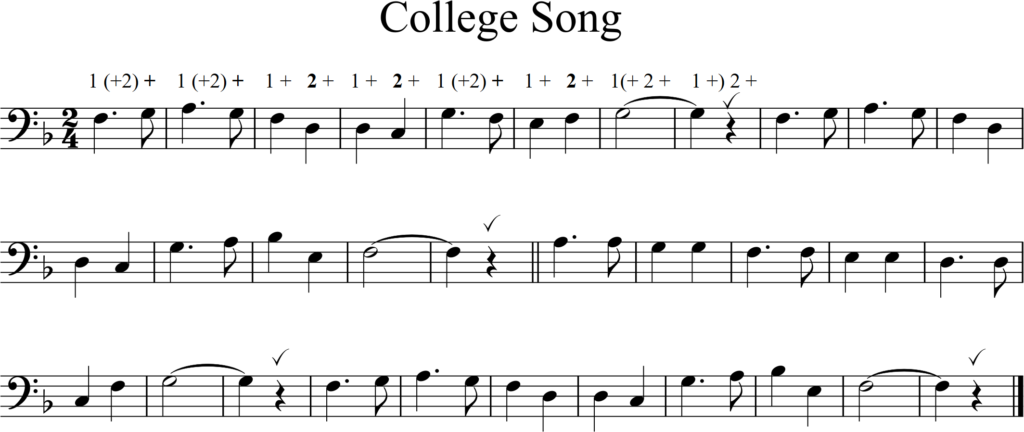
Over the River and Through the Woods
This tune includes half-hole notes and speaker key notes. Look through the music and identify the notes that require either half-hole or a speaker key and practice those intervals before playing the entire tune.
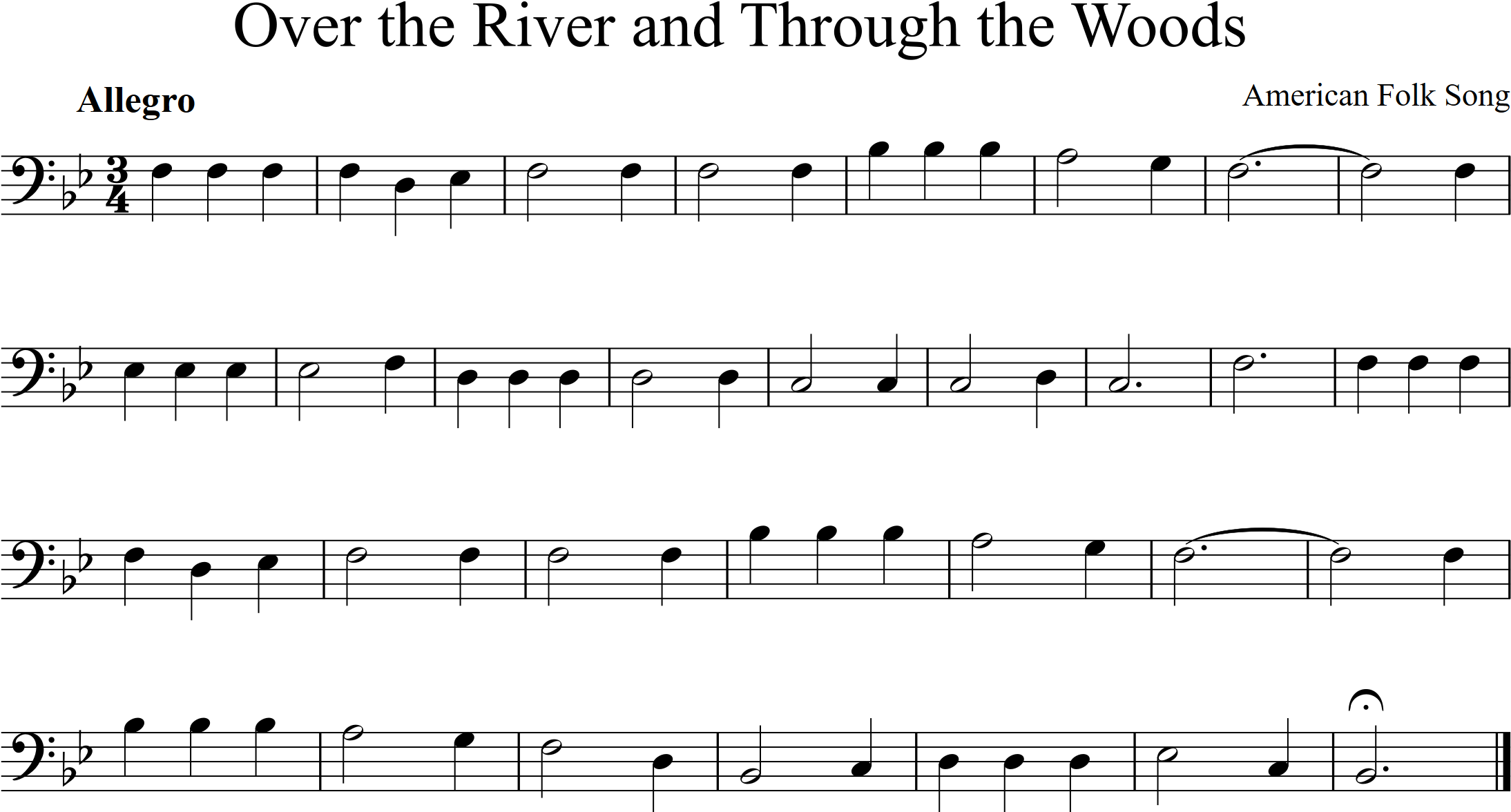
Over the River and Through the Woods with finger reminders.
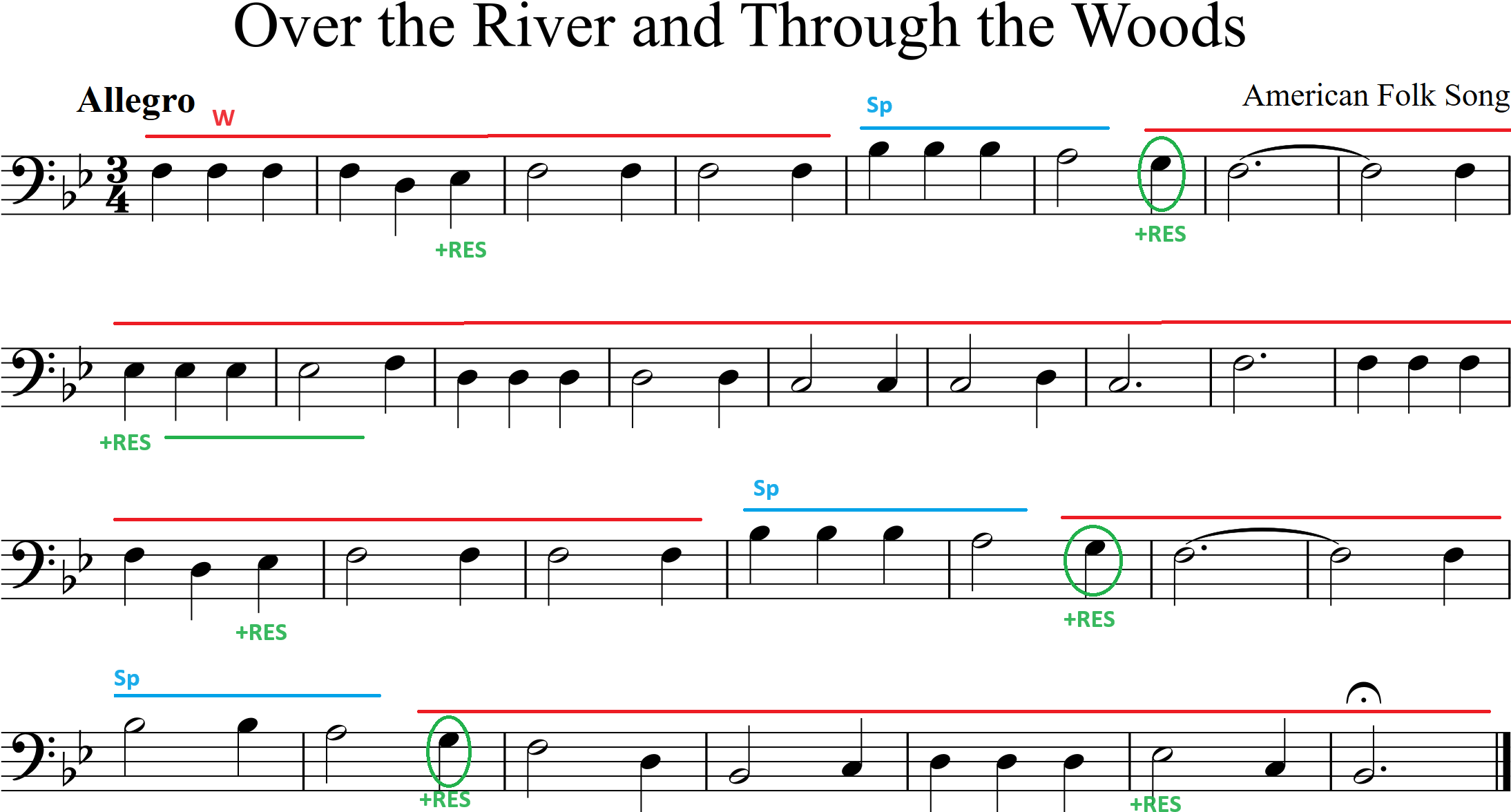
Blue Bells of Scotland
Observe the phrasing (breath marks) and slurs. The left thumb will move between the whisper key and high A speaker key a lot, and don’t forget the half-hole on top space G.
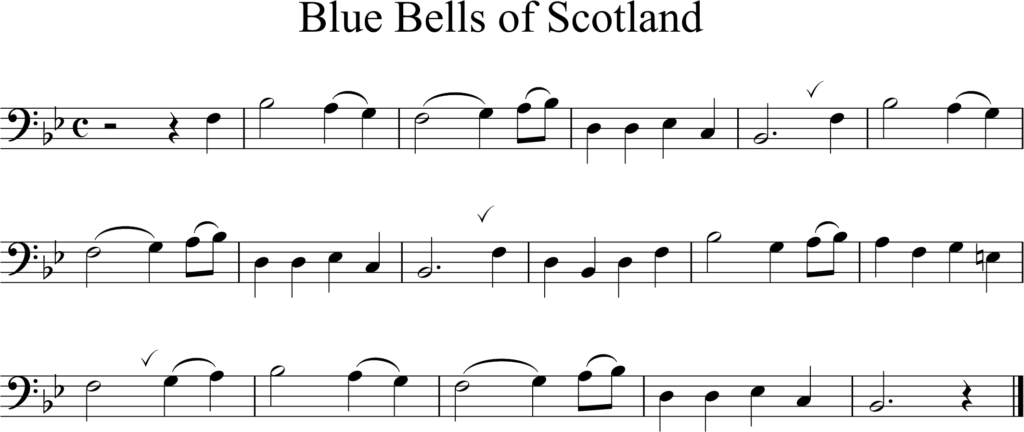
Blue Bells of Scotland with reminders for your fingers.
March of the Leprechauns
Excerpt from March of the Leprechauns by Frank Erickson (Alfred Publishing, edited Arthur Best)
- NYSSMA Level 1 solo for bassoon and piano
- First 20 bars
- Two beats per bar, quarter note gets the beat.
- Observe the articulations:
- Tenuto – a pressed accent
- Staccato – spaced (create silence on both sides of the note)
- Slur – only the note at the beginning of the slur gets tongued.
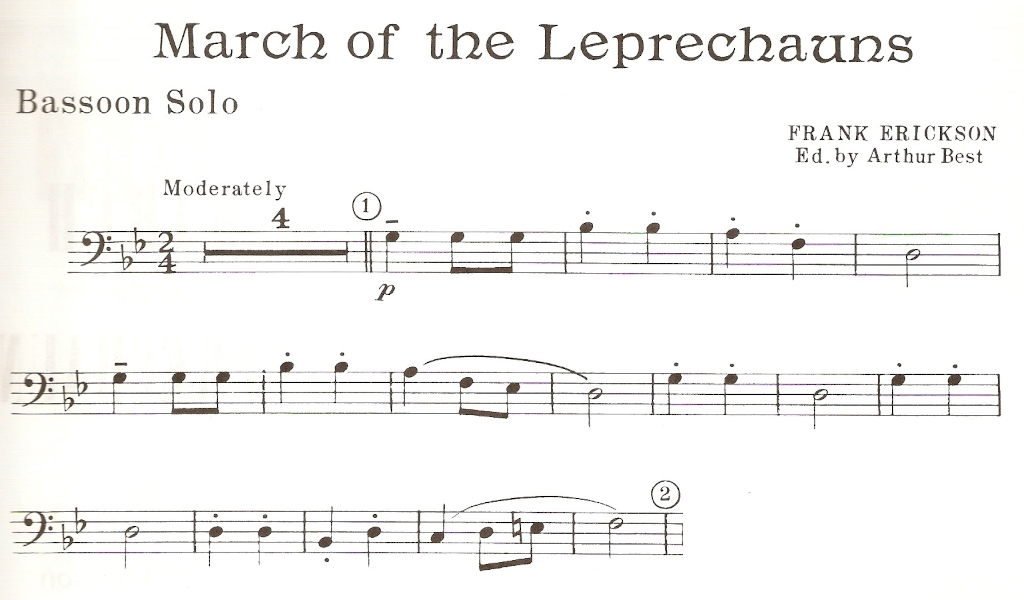
This piece is only available as part of the collection Classic Festival Solos, Volume 2 published by Alfred Publishing, Co.

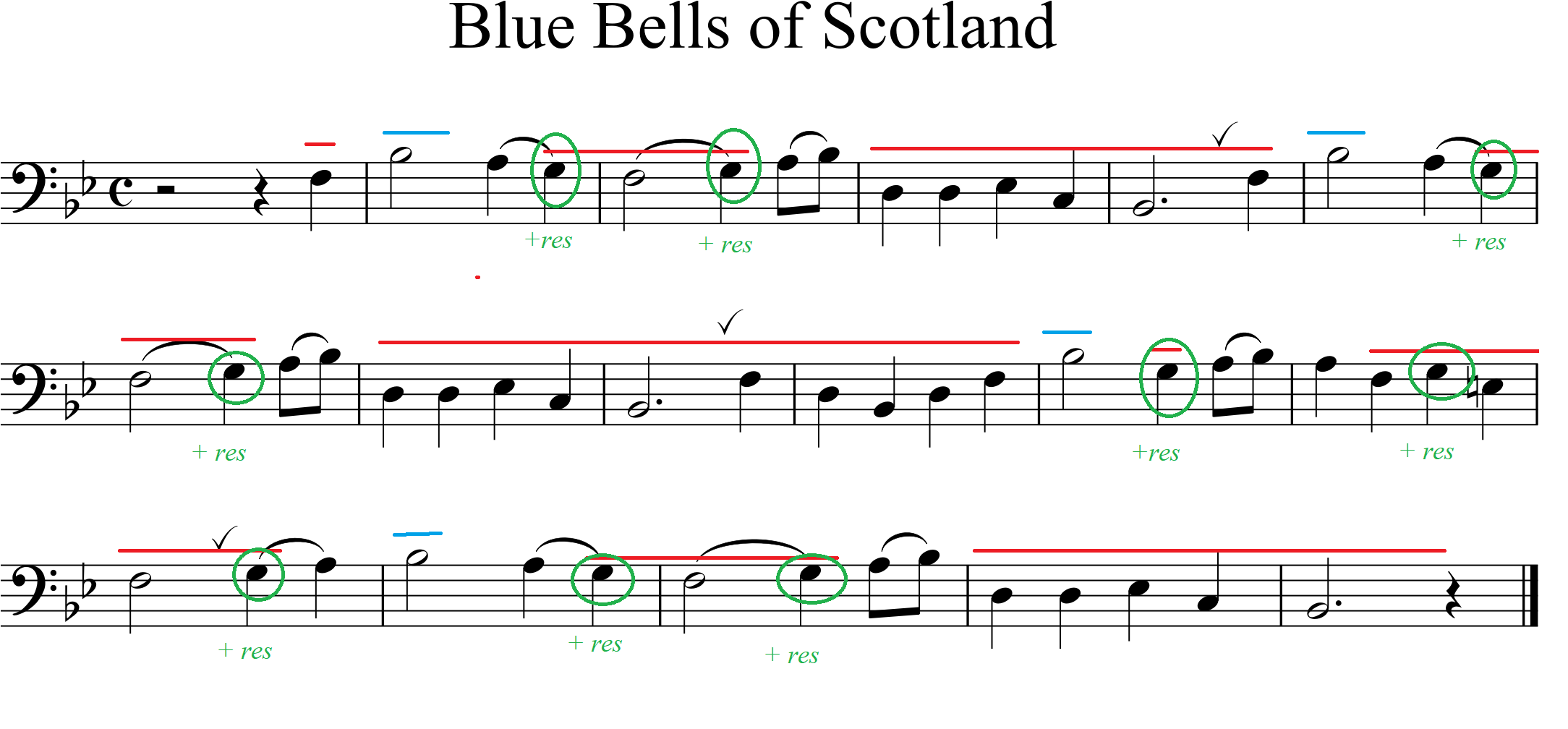

Feedback/Errata